Does Smoking Cause Acne?
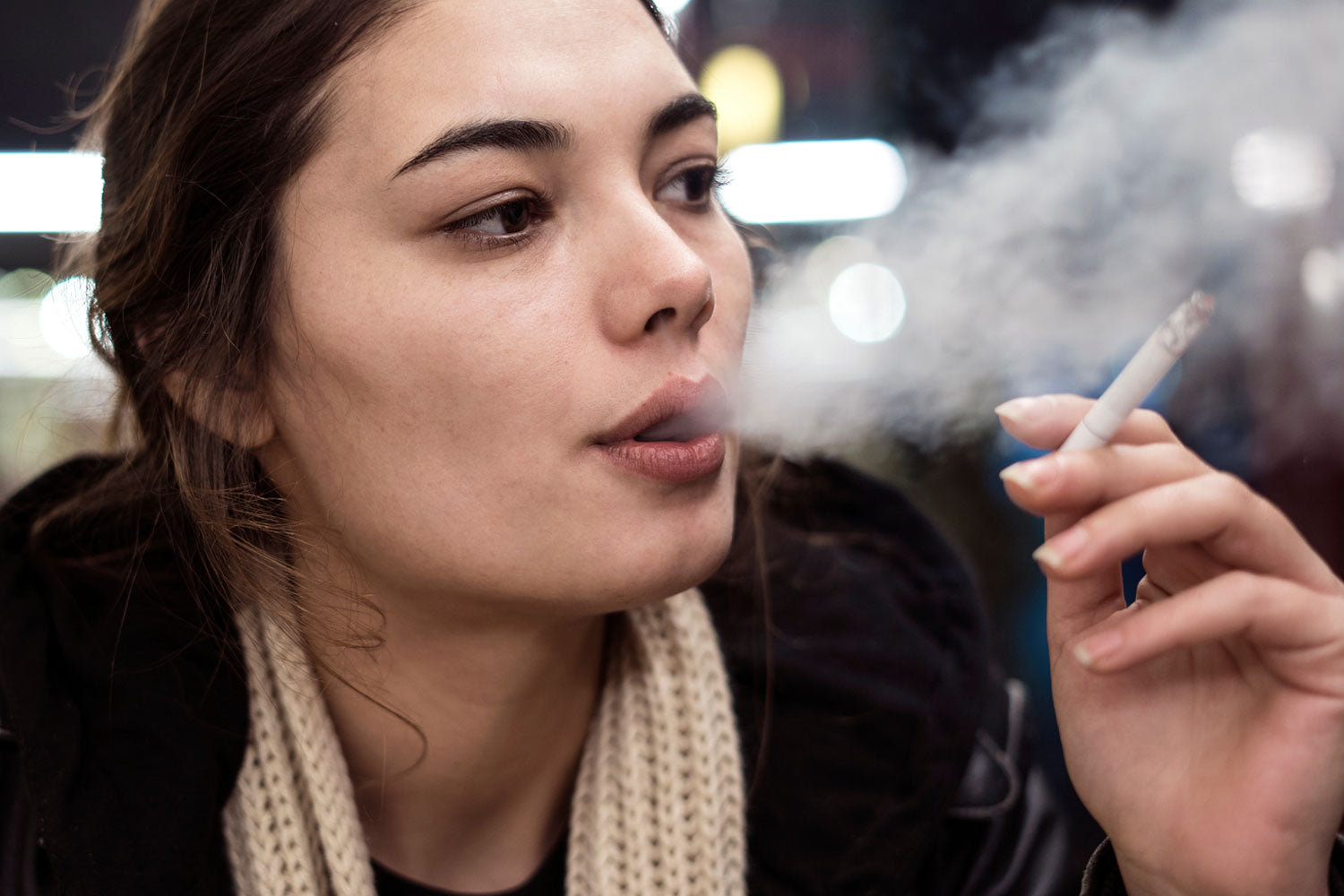
If you’re wondering whether smoking causes adolescent or adult acne, take a look at this research and consider how this deadly habit can affect your skin and overall health.
Studies have found that smoking cigarettes may have a direct correlation to breakouts, indicating that smoking and acne are linked.
A study performed by the Dermatological Institute in Rome, Italy noted higher rates of acne in smokers, and found that cigarette smoke made non-inflammatory acne worse.
However, a conflicting study that examined 27,083 young men over 20 years found that active smokers had lower rates of severe acne than nonsmokers.
Smoking Acne Studies
It seems for every study that claims smoking can result in an acne breakout, there’s another study that disproves this theory.
One of the first highly cited studies about the topic came in 2001, published in the British Journal of Dermatology. This study examined 896 participants and found that on the whole, smokers tended to have more acne. Beyond this prevalence, the research showed that the more the participants smoked, the worse their acne felt and appeared.
Fast forward a few years, and a study published in the Journal of Investigative Dermatology in 2006 reported very different results. This study saw nurses interviewing over 27,000 men over a 20-year period and found that active smokers actually showed a significantly lower prevalence of severe acne than their nonsmoking counterparts.
To add to the confusion, just a year later, another study emerged. This one, published in the Journal of the European Academy of Dermatology and Venereology, found that out of 594 participants, smoking seemed to result in lower prevalence of acne—but only among the girls studied. There was no significant association found between acne and smoking among the boys included in the study.
A recent study in 2012 looked at 17,345 Chinese adults and adolescents. The results found a significant correlation between smoking and adolescent acne, but cigarettes and tobacco use didn’t seem to have a significant impact on adults in the same study.
So the question still stands: does smoking cigarettes cause acne?
There’s not yet a definitive answer. As evidenced by these studies, the research about acne and smoking really runs the gamut, and the medical research community requires a great deal more research before any true consensus can be drawn. Conflicted evidence about cigarettes and acne vulgaris aside, there is one form of acne that does have a known relationship with smoking: acne inversa.
What is Acne Inversa?
It's important to understand how acne is caused in order to properly treat it. Acne inversa is a form of acne that occurs due to blockage of the pore from the top down, whereas Acne Vulgaris clogs pores from the bottom up.
Acne inversa is caused by too-rapid skin growth at the top of a hair follicle. Because the skin sheds and grows so quickly, the mouth of the pore is occluded. These pores can then become blocked and inflamed, resulting in pimples and other acne lesions. Acne inversa is often observed on intertriginous skin, which refers to areas in which two separate patches of skin touch. This can occur in the underarms, between buttocks cheeks, under the foreskin, and in the vagina—all areas most of us wouldn’t expect to find acne blemishes.
So what does this have to do with smoking? According to recent research, smokers exhibit symptoms of acne inversa far more than nonsmokers. One German study found that out of a group of 100, 87 percent of people that had acne inversa were smokers. According to medlineplus.gov, if you have acne inversa and quit smoking, you may notice your acne blemishes disappear immediately with the help of the right acne treatment products.
Smoking and the Skin
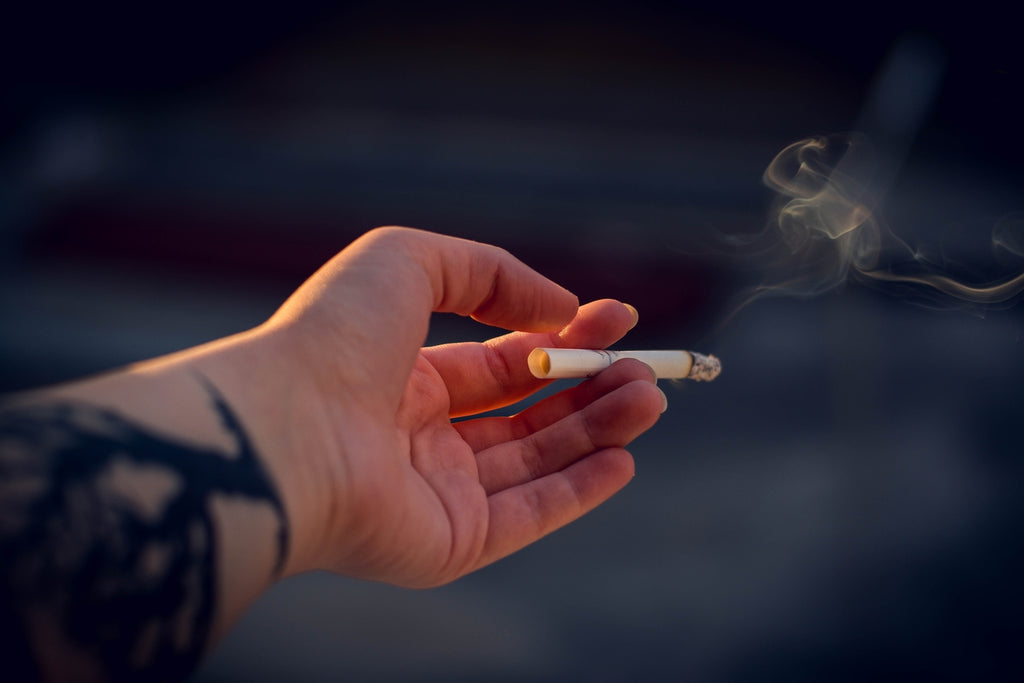
While the debate rages on about whether or not smoking causes or aggravates the prevalence of acne blemishes, the science is clear about smoking’s negative effects on the skin and health in general. Regular smoking constricts the blood vessels, and can damage the surface of many parts of our bodies. From psoriasis to aging, skin cancer to your skin’s ability to heal, smoking can wreak havoc on our skin.
Smoking and Psoriasis
While the connection between smoking and acne hasn’t been proven, many studies have shown that smokers often have higher incidence of psoriasis. This scaly skin condition is more severe in smokers that suffer from metabolic syndrome. Psoriasis is an auto immune disease, in which your immune system triggers excess skin inflammation (terrible news for those who have inflammatory acne) causing skin cells to reproduce at faster than normal rates. The body can’t shed these new skin cells that quickly, so old, dead skin cells start piling up.
While the exact cause of psoriasis is unknown, studies have shown that smoking can affect the immune system, triggering the body to proliferate skin cells at a quicker rate. This means quitting smoking could potentially decrease the severity of a psoriasis condition.
How Smoking Affects our Hormones
Smoking can disrupt our hormone balance. Cigarette smoking can raise the level of adrenal hormones including androgens and cortisol. High cortisol levels can result in unstable blood sugar, which then causes an increase in insulin and blood glucose. This excess can again stimulate the production of androgens. Androgens are the male hormone that signals the production of sebum in the sebaceous glands. As these glands produce more oil, pores are more easily clogged, resulting in inflammatory, often painful acne lesions.
Excess sebum can cause both anti-inflammatory acne and inflammatory acne, and it’s important to keep sebum production under control—cigarettes don’t make the cut.
Smoking and Healing
Smoking can damage the immune system, and slow down the healing of wounds. Those who often deal with sore, open wounds from acne, whether naturally or through bad habits like picking the skin, may find that their skin heals more slowly due to smoking.
Because smoking causes a decrease in oxygen in skin cells, results in decreased collagen synthesis, and delays the growth of new blood vessels within a wound, it can increase the likelihood of infection. These factors can also make it harder for the skin to heal and prevent acne scarring, which can worsen the appearance of blemishes. Using a product like BioClarity can help you avoid further breakouts.
Clearer skin in as little as two weeks.
3-step ritual with nutrient rich botanicals and the power of Floralux® to treat, soothe, and calm skin.
Learn MoreSmoking and Vitamin E
Smoking cigarettes can reduce the amount of Vitamin E found in the skin. Vitamin E is an essential antioxidant that our body uses to protect our skin from sunlight and pollution, along with other outside stressors. Research has found that smokers have lower levels of vitamin E, and an Italian study found that smoking can cause higher levels of oxidized sebum—the combination of these two factors can result in worsened acne.
Smoking and Wrinkles
It’s no surprise that smoking can speed up your skin’s normal aging process. The more you smoke, and the longer you smoke, the quicker your skin will age, and the more wrinkles you’ll develop. The nicotine in cigarettes can narrow your blood vessels that line the outer layers of the skin, impairing blood flow. The less blood flow you have in those areas, the less oxygen and nutrients make it there which further proves the negative relationship between nicotine and acne.
The next time your friend asks "does nicotine cause acne", be sure to let tell them about the negative impact it will have on their skin. The chemicals found in cigarettes and tobacco can also cause irreversible damage to elastin and collagen, fibrous proteins that give your skin its elasticity and strength. This can cause the skin to sag and wrinkle long before it should.
If you want to keep your skin looking and feeling its best for years to come, it’s essential to stop smoking and avoid contact with secondhand smoke.
Smoking and Skin Cancer
When we think of skin cancer, we often imagine tanning beds and beach days, but did you know that smoking cigarettes can increase the likelihood of developing this specific cancer? Research has shown that smokers have twice the risk of developing squamous cell carcinoma than nonsmokers. This is the second most common form of skin cancer, and is characterized by an uncontrolled growth of abnormal cells in the squamous cells. These squamous cells compose most of our skin’s upper layers. They may look scaly and red, feature open sores, or appear as warts that crust or bleed. Disfiguring and sometimes deadly, there are more than 1 million cases of this cancer diagnosed each year. Could there be any more reason to quit than cancer?
The Final Word on Cigarettes and Skin Health
While the jury is still out on the connection between smoking cigarettes and acne prevalence, it can’t be denied that smoking can have terrible effects on our skin overall. From expedited aging to cancer risk, psoriasis issues to acne inversa, there’s a million reasons smoking can be bad for our skin.
Skin care is about more than just washing your face. Keeping healthy, clear skin means making great choices in diet, lifestyle habits, and cleansing routine. A smoking habit can ruin your skin, resulting in a host of ailments that can wreak havoc on acne-prone skin. Whether you have dry or oily skin, deal with daily breakouts or only see a pimple every once in a while, consider the effects smoking may have on your skin.
Other resources on the causes of acne that you may find interesting:
- Does green tea help treat acne?
- Does eating chocolate promote acne?
- Can stress promote acne?
- Can using birth control cause acne
- The relationship between alcohol and acne

Abby Vinas
Abby Vinas has long been an active member of the holistic health community, advocating in favor of its benefits to both our physical and emotional well-being. Her commitment to leading a healthy lifestyle has made her an authority on self-care practices. Abby is passionate about fitness, nutrition, and proper skincare, and is also an avid lover of avocado toast and dog-petting.



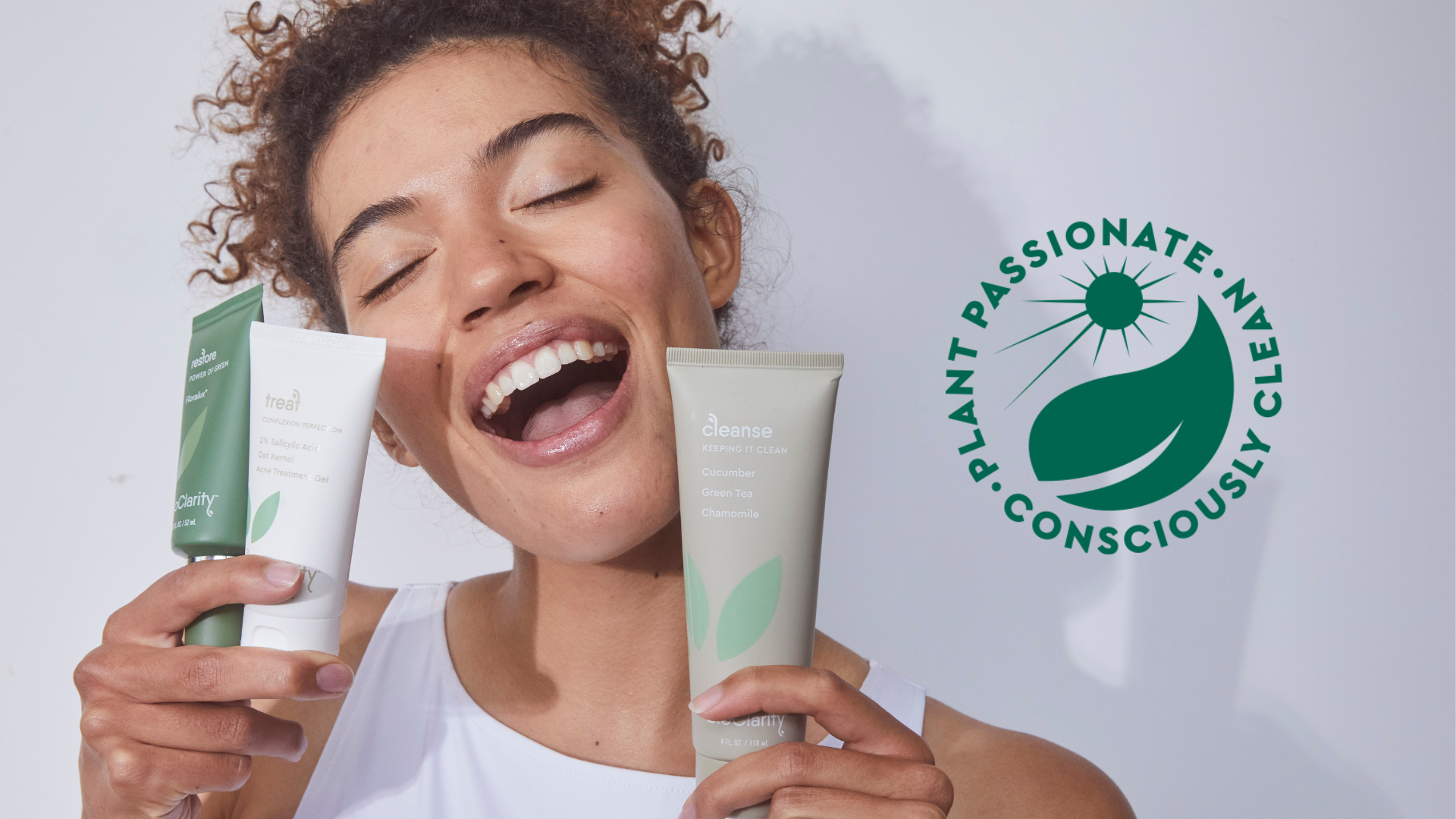

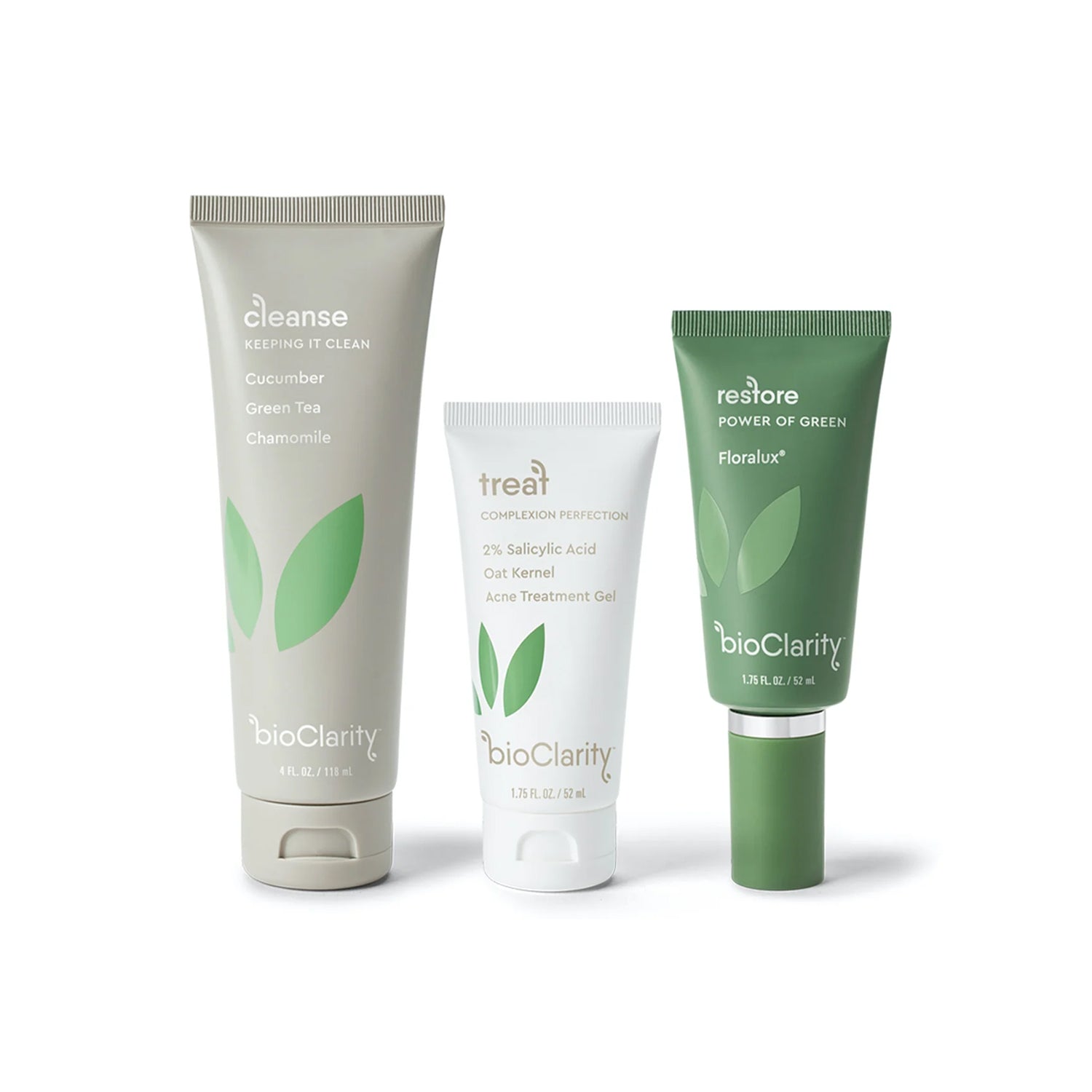
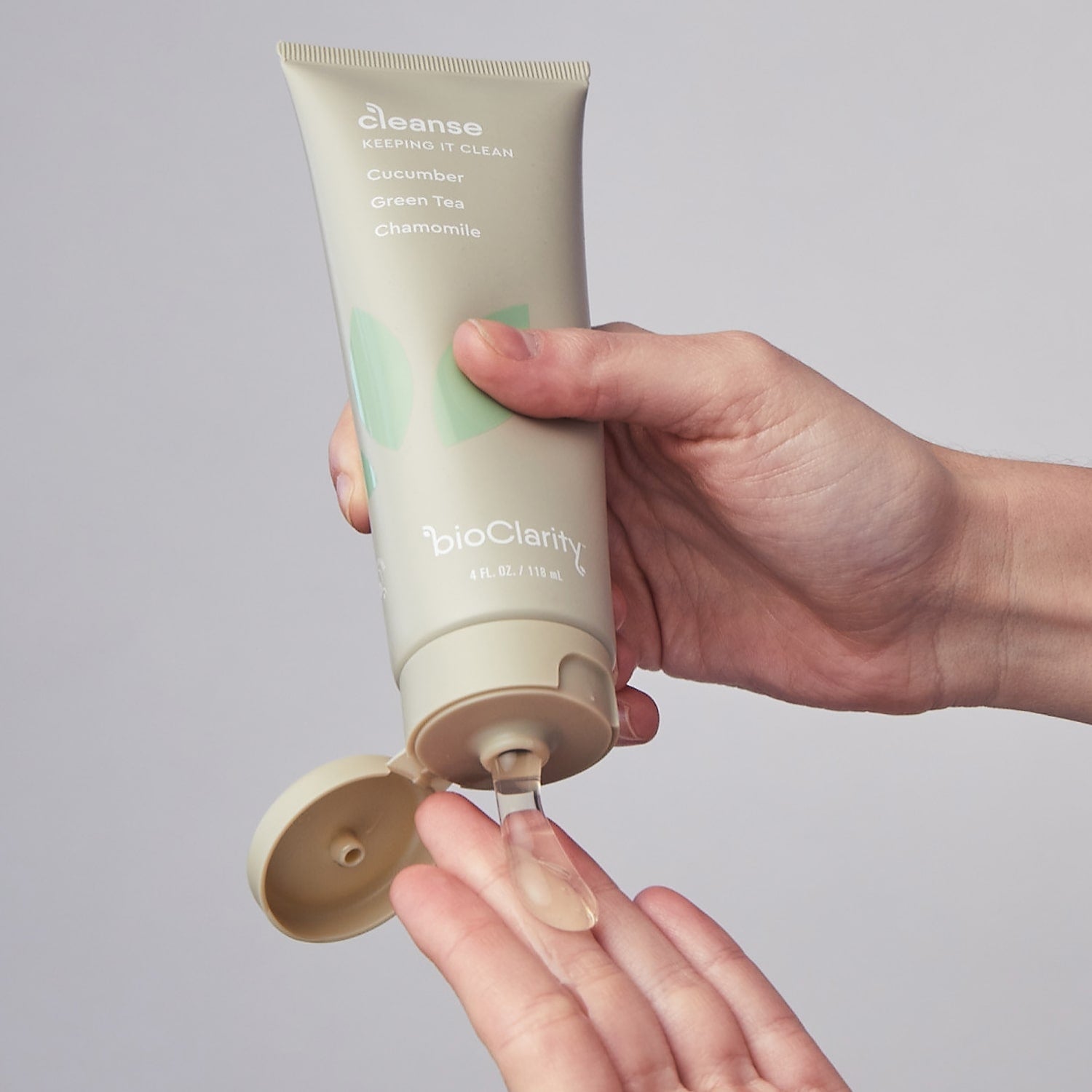
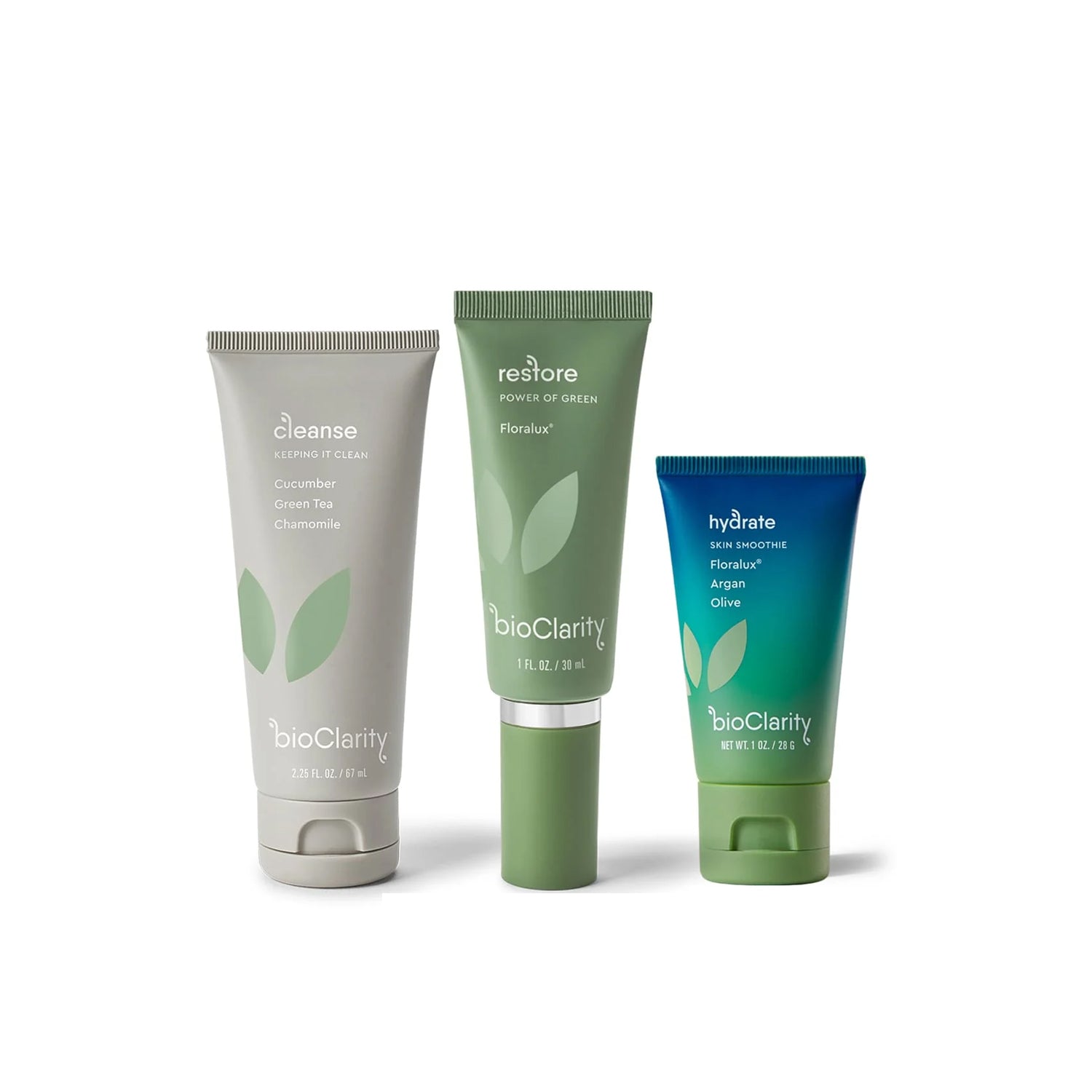
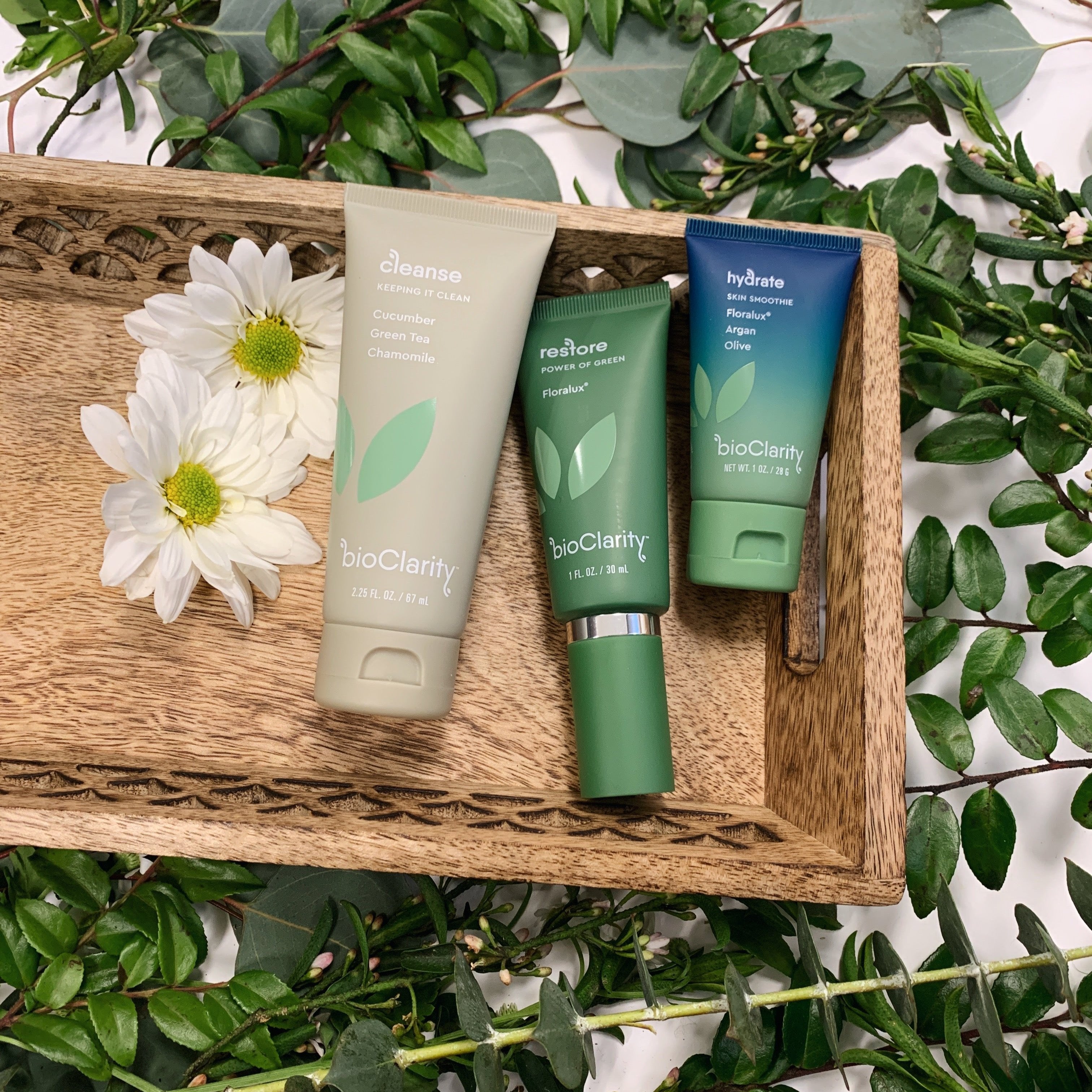
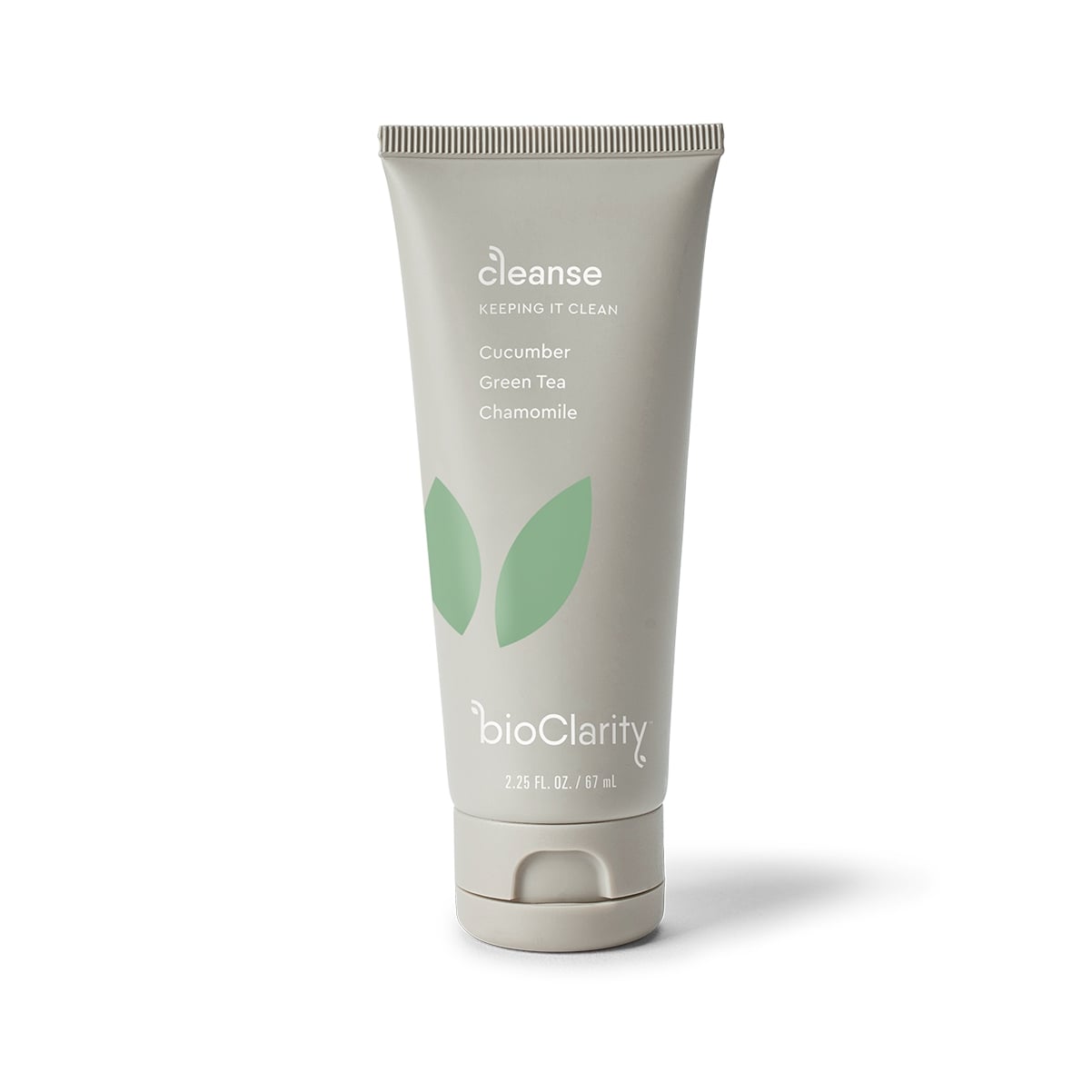

Comments